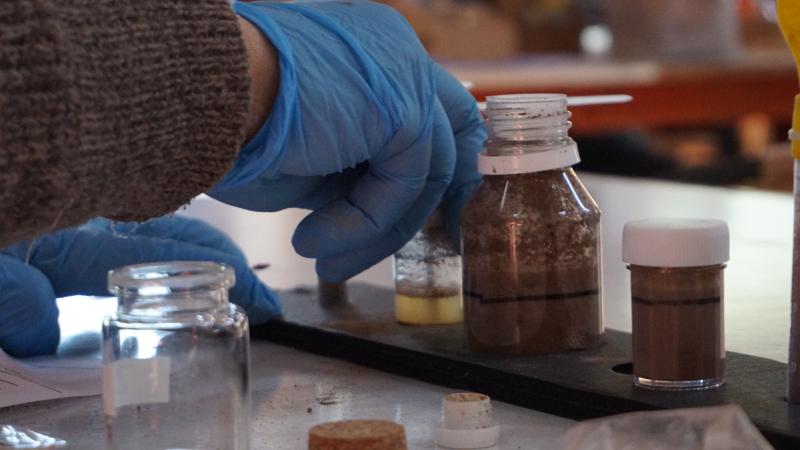NSF grant will support first sustained analysis of soil lead as a ubiquitous global residue
June 3, 2021

Most everyone has heard about the dangers of lead — a toxic metal used for centuries that, because of mining, industrial pollution and automobile emissions, is found in the soil of playgrounds, parks, empty lots, and maybe even your backyard. Remediation or removal is expensive and nearly impossible in many situations. So how can people try to reduce the harms caused by lead in the soil of their communities?
Abby Kinchy, a professor in the Department of Science and Technology Studies at Rensselaer Polytechnic Institute, will seek to answer these questions with the support of a Scholars Award from the National Science Foundation (NSF). The $94,000 grant will enable Kinchy to trace soil lead residues in four countries with distinctive roles in the lead industry: the United States, Chile, the United Kingdom, and Australia.
“This will be the first sociological analysis of soil lead. Lead pollution is ubiquitous in soil because of past uses like leaded gasoline, but it also continues to build up because of industries that are still ongoing today,” Kinchy said. “My goal is to understand how people in different environments — from lead mines to urban neighborhoods — are creating knowledge about soil lead, developing and promoting methods to reduce exposures, and changing the social and economic circumstances in which lead exposures occur.”
Spanning four continents, Kinchy’s project seeks to offer new ways to conceptualize the global problem of lead residues, while illuminating possible solutions that are emerging in particular locales.
Kinchy will conduct her research through ethnographic fieldwork in historical and present-day lead mining and processing communities, interviews of scientists and activists who conduct community-based soil testing research, analysis of documents about historical and contemporary sources of lead residues in soils across the planet, and examination of the scientific literature and risk modeling about soil lead exposures.
This study will also deploy a novel research method called ethnographic soil testing. By interviewing urban gardeners while collaboratively testing their soil for traces of lead, Kinchy will gain insights regarding how people think about their own exposures to lead, their relationships to the environmental histories of their communities, and living safely in contaminated environments.
Kinchy, a sociologist, has led previous NSF-funded projects, including one that explored how citizen science could help urban communities to identify heavy metal contamination in soil, and another examining the practices and politics of environmental monitoring relating to fracking.
She is the author of Seeds, Science, and Struggle: The Global Politics of Transgenic Crops and the co-author, with Aya H. Kimura, of Science by the People: Participation, Power, and the Politics of Environmental Knowledge. She recently received a prestigious fellowship from the Institute of Advanced Study at Durham University.